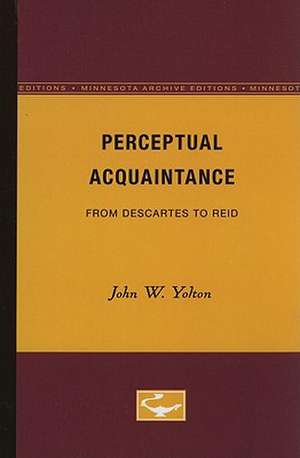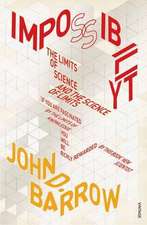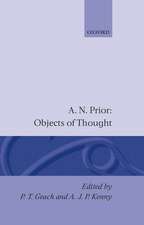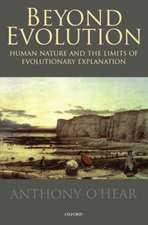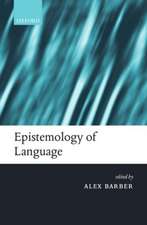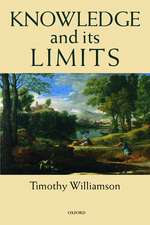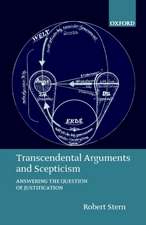Perceptual Acquaintance: From Descartes to Reid
Autor John W. Yoltonen Limba Engleză Paperback – 7 mai 1984
Perceptual Acquaintance was first published in 1984. Minnesota Archive Editions uses digital technology to make long-unavailable books once again accessible, and are published unaltered from the original University of Minnesota Press editions.
Philosophers, wrote Thomas Reid in 1785, "all suppose that we perceive not external objects immediately, and that the immediate objects of perception are only certain shadows of the external objects." To Reid, a founding father of the common-sense school of philosophy, John Locke's "way of ideas" threatened to supplant, in human knowledge, the world of physical objects and events—and to point down the dreaded path to scepticism.
John Yolton finds Reid at least partly responsible for this standard (and by now stereotypic) account of Locke and his eighteenth-century British successors on the subject of perception. By carefully examining the writings of Descartes and the Cartesians, and Locke and his successors, Yolton is able to suggest an alternative to this interpretation of their views. He goes back to a wide range of original texts—those of the period's major philosophers, to Descartes' scholastic precursors, to obscure pamphleteers, and to writers on religion, natural philosophy, medicine, and optics—all in an effort to help us understand the issues without the interference of modern labels and categories. The subtle changes over time reveal an important transformation in the understanding of perception, yet one that is prefigured in earlier work, contrary to Reid's view of the past. Included in Yolton's reevaluation is a full account of the role of Berkeley and Hume in the study of perceptual acquaintance, and of the connection between their work.
Philosophers, wrote Thomas Reid in 1785, "all suppose that we perceive not external objects immediately, and that the immediate objects of perception are only certain shadows of the external objects." To Reid, a founding father of the common-sense school of philosophy, John Locke's "way of ideas" threatened to supplant, in human knowledge, the world of physical objects and events—and to point down the dreaded path to scepticism.
John Yolton finds Reid at least partly responsible for this standard (and by now stereotypic) account of Locke and his eighteenth-century British successors on the subject of perception. By carefully examining the writings of Descartes and the Cartesians, and Locke and his successors, Yolton is able to suggest an alternative to this interpretation of their views. He goes back to a wide range of original texts—those of the period's major philosophers, to Descartes' scholastic precursors, to obscure pamphleteers, and to writers on religion, natural philosophy, medicine, and optics—all in an effort to help us understand the issues without the interference of modern labels and categories. The subtle changes over time reveal an important transformation in the understanding of perception, yet one that is prefigured in earlier work, contrary to Reid's view of the past. Included in Yolton's reevaluation is a full account of the role of Berkeley and Hume in the study of perceptual acquaintance, and of the connection between their work.
Preț: 389.59 lei
Nou
Puncte Express: 584
Preț estimativ în valută:
74.55€ • 79.72$ • 62.16£
74.55€ • 79.72$ • 62.16£
Carte tipărită la comandă
Livrare economică 17 aprilie-01 mai
Preluare comenzi: 021 569.72.76
Specificații
ISBN-13: 9780816611638
ISBN-10: 0816611637
Pagini: 260
Dimensiuni: 152 x 229 x 15 mm
Greutate: 0.36 kg
Ediția:Minnesota Archi.
Editura: University of Minnesota Press
Colecția Univ Of Minnesota Press
ISBN-10: 0816611637
Pagini: 260
Dimensiuni: 152 x 229 x 15 mm
Greutate: 0.36 kg
Ediția:Minnesota Archi.
Editura: University of Minnesota Press
Colecția Univ Of Minnesota Press
Notă biografică
John Yolton was professor of philosophy and dean of Rutgers College at Rutgers University. Perceptual Acquaintance and a companion volume, Thinking Matter, grew out of years of research in seventeenth and eighteenth-century thought. His earlier titles include John Locke and the War of Ideas and Locke and the Compass of Human Understanding; he edited The Locke Reader and the Everyman edition of Locke’s Essay Concerning Human Understanding. Yolton also served on the editorial board of the journal Eighteenth-Century Studies.
Textul de pe ultima copertă
Minnesota Archive Editions uses digital technology to make long-unavailable books once again accessible to scholars, students, researchers, and general readers. Rich with historical and cultural value, these works are published unaltered from the original University of Minnesota Press editions. The books offered through Minnesota Archive Editions are produced in limited quantities according to customer demand and are available through select distribution partners.
